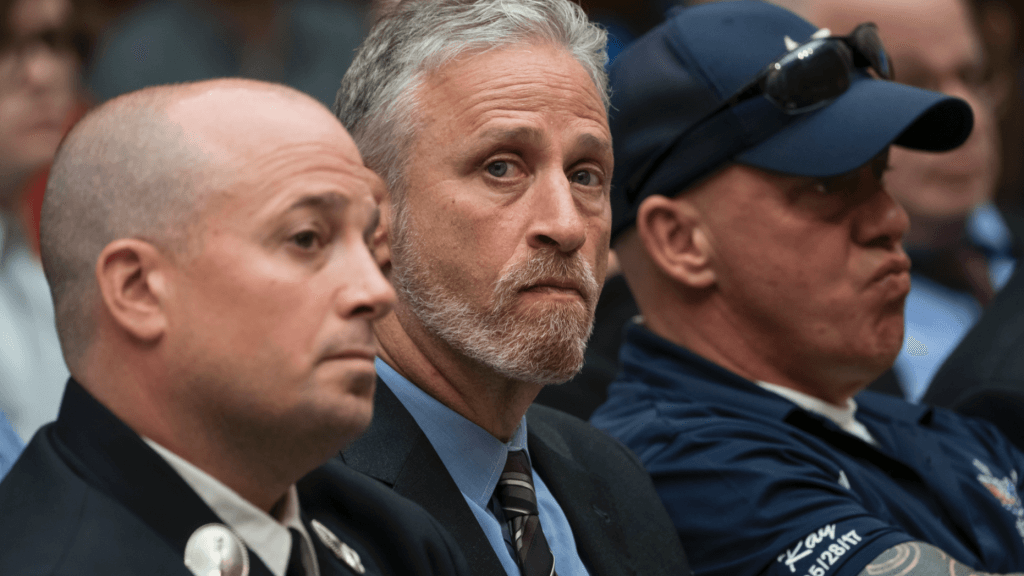Comedian and former “The Daily Show” host Jon Stewart, along with his wife, Tracey Stewart, are both committed vegans, which means that they follow blant-based diets and steer clear of animal products. Now, the couple has officially backed a campaign called “Let’s Beat Breast Cancer,” which encourages women to stave off breast cancer by following a vegan diet (eating plant-based foods), limiting their alcohol intake, exercising often, and maintaining a healthy weight.
Three of these “prongs” to the approach are more or less uncontested. Few would argue with Stewart and the over 12,000 doctors and dietitians in the Physicians Committee for Responsible Medicine (the group that established the campaign) about the benefits of diet, exercise, and moderate alcohol consumption.
Read More
Reduce Inflammation to Reduce Your Cancer Risk, Say the Experts
Krista Maruschak, a registered dietitian at the Cleveland Clinic Cancer Center, previously told SurvivorNet about how the anti-inflammatory diet decreases cancer risk. “Inflammation in the body can cause a whole host of health conditions and co-morbidities,” she said. “And inflammation is really increased by … refined carbohydrates, like white breads, white pastas, white rice, sweet desserts, as well as high fat, saturated fat, and meats like red meat [and processed meat].” Additionally, according to the Physicians Committee for Responsible Medicine backing the campaign that Jon Stewart just joined, “Healthful foods from plants (vegetables, fruits, whole grains, and beans) lower breast cancer risk in several ways. They help with weight loss, because they are typically low in calories and high in appetite-taming fiber. In addition, high-fiber, low-fat diets can help you gently reduce estrogen levels. In turn, lower estrogen levels can lower your risk of cancer.”
Misconceptions About Soy and Breast Cancer
One of the plant-based foods that the campaign really encourages women to eat more of is soy — which is full of healthy protein and protective substances called “isoflavones.” Soy is also really versatile and easy to add to your diet (tofu and soy milk, for instance).
Krista Maruschak spoke with SurvivorNet about how soy’s bad rap is unwarranted.
Interestingly, for a lot of women who have heard that “soy contains estrogen,” this may sound counterintuitive (because estrogen can fuel certain types of breast cancer). But according to Maruschak, the type of estrogen found in soy — plant estrogen — is completely different than the type of soy inside our bodies. “Soy does not cause breast cancer,” she reassured SurvivorNet. “Even if somebody has an estrogen-positive breast cancer, we stil recommend that they can have up to three servings of whole soy products a day. Whole soy products can be incorporated into a healthy diet and should be incorporated into a healthy diet as a plant-based protein source.”
RELATED: Major Reduction in Cancer Risk by Following Old Standbys Diet and Exercise

Where Does Meat Fit Into All of This?
As soon as the Let’s Beat Breast Cancer Campaign launched and Jon Stewart and several other celebrity names stepped up to support it, pro-vegan groups, including the vegan news site, “Veg News,” stepped up to champion the campaign. Vegans of course, exclusively eat plant-based foods and tend to steer clear of meat and animal products altogether.
RELATED: Meat is Not the Enemy
But cutting out from your diet entirely, it’s worth noting, isn’t necessary to reduce your risk of breast cancer (or really any cancer). According to Maruschak, lean meats such as turkey and fish as well as animal products like eggs are actually part of that good-for-you “anti-inflammatory diet” she mentioned.
The problem with meat lies in the way it’s processed or cooked. The evidence is clear that too much charred meat, red meat, or processed meat such as sausages and hot dogs can up your cancer risk (even as headlines this past week said otherwise).
Dr. Stephen Freedland, the Director of the Center for Integrated Research in Cancer at the Cedars-Sinai Medical Center, told SurvivorNet that while meat itself isn't "the enemy," the way that we process and cook our meats can cause cancer. The World Health Organization, it's worth noting, classifies processed meat as a carcinogen (meaning "cancer-causing") to humans.
Learn more about SurvivorNet's rigorous medical review process.


